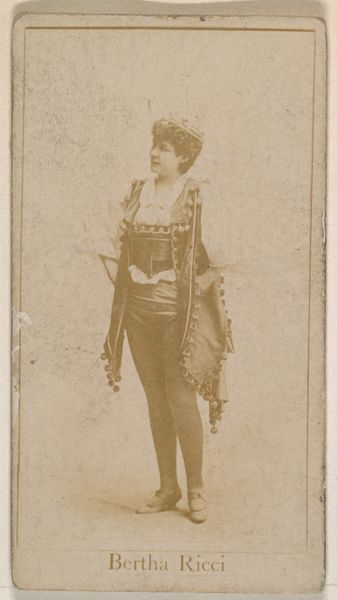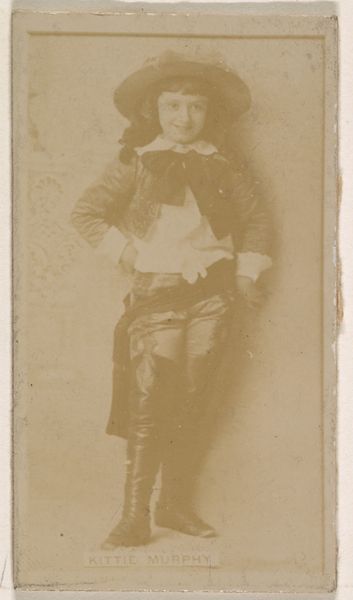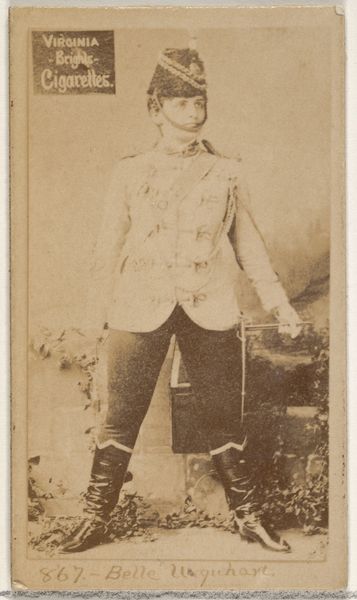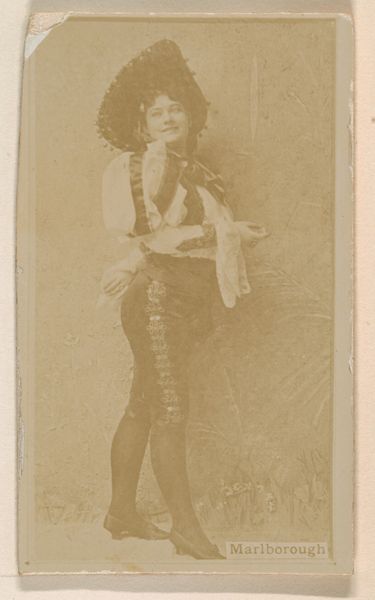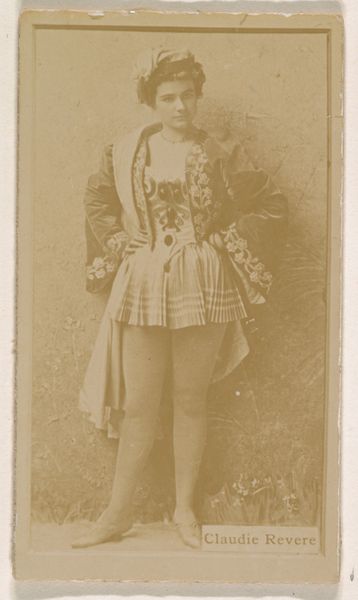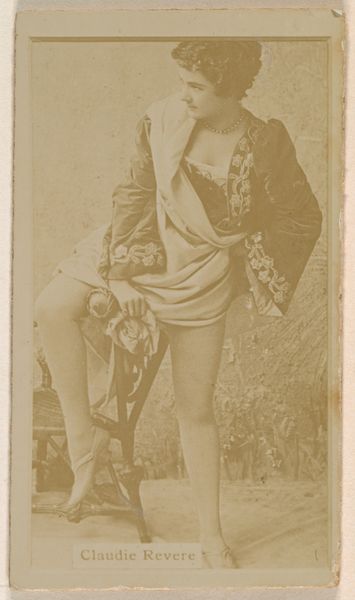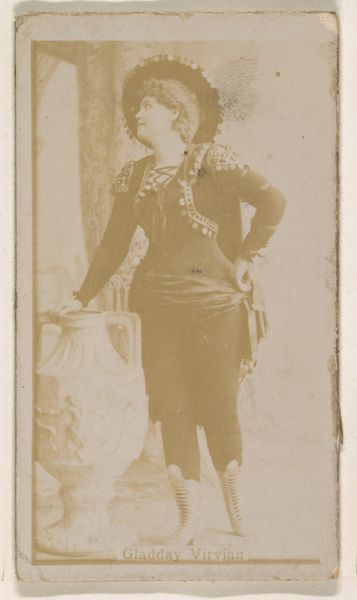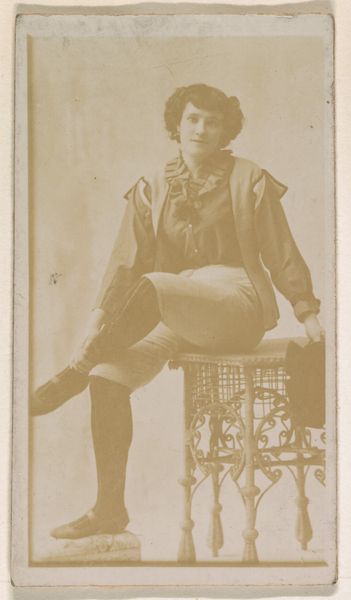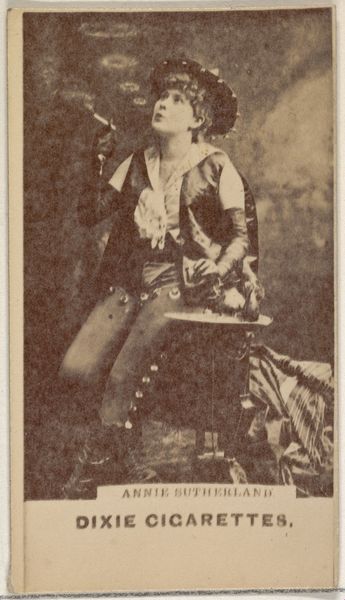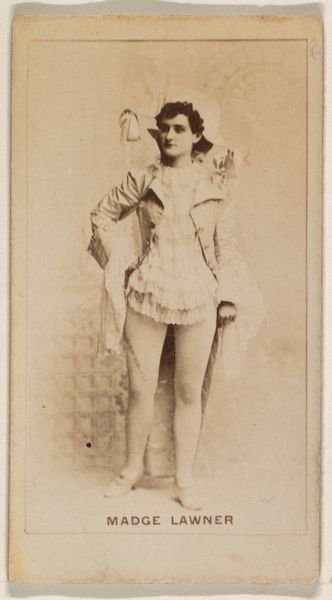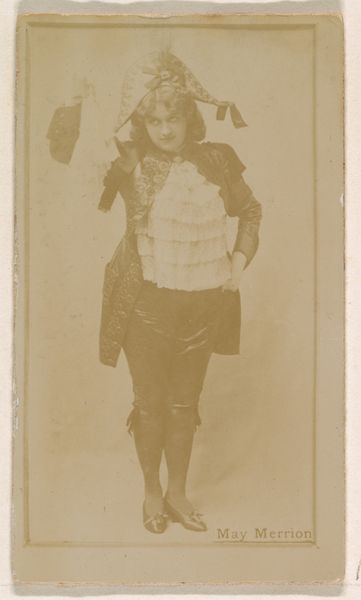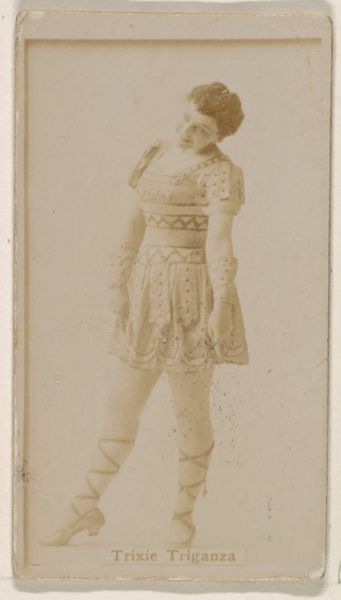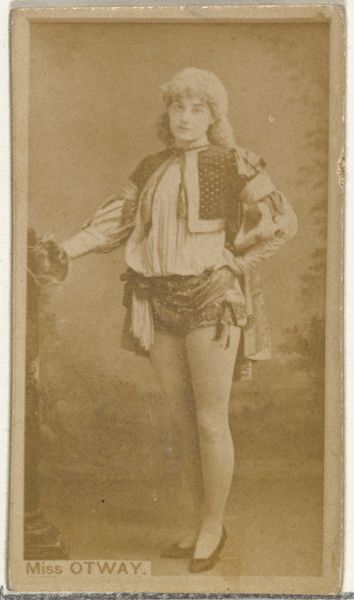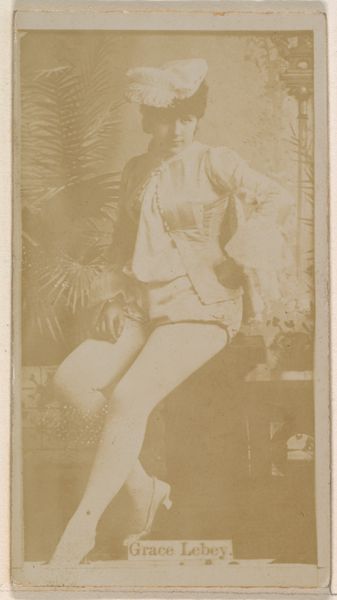
Ethel Ormonde, from the Actresses series (N245) issued by Kinney Brothers to promote Sweet Caporal Cigarettes 1890
0:00
0:00
drawing, print, photography
#
portrait
#
drawing
#
still-life-photography
#
pictorialism
# print
#
photography
Dimensions: Sheet: 2 1/2 × 1 7/16 in. (6.4 × 3.7 cm)
Copyright: Public Domain
Curator: This striking print is "Ethel Ormonde, from the Actresses series" issued around 1890 by Kinney Brothers, of Sweet Caporal Cigarettes. It's currently held at the Metropolitan Museum of Art. Editor: Wow, she’s got quite the stance. It's almost confrontational, right? Sort of challenging us, but with this gentle sepia tone that softens it all. I see swagger. Curator: Absolutely. Consider how women performers were presented in that era. Tobacco cards often reinforced stereotypes, but here, we see Ethel embracing a theatrical masculinity, hands on hips, challenging those restrictive gender norms. The very existence of “actress” cards provided work opportunities while reinforcing stereotypes about working women. Editor: I'm intrigued by what she’s wearing, kind of a loose interpretation of Spanish influences? Look at that bolero jacket. Almost reminds me of Carmen, if Carmen decided to wear culottes. Curator: Exactly. Performance was a contested space. She’s a performer, commodified, but is also self-possessed. Note her gaze slightly above us, it's consciously directed. Editor: There’s also this tension, though, with the card being a promotion for cigarettes. It creates an association with a consumer product—reinforcing the image of women as consumable. Did the company reinforce restrictive stereotypes elsewhere in its ad campaigns? Curator: Indeed. But focusing just on oppression obscures the power that comes with representation, especially for those marginalized. Consider Judith Butler’s theory of performativity here. We could frame her gaze as intentionally performing gender as resistance within these limitations. Editor: That's compelling, the performance as both constraint and possibility. Makes you wonder what her story was outside this frame. Curator: Precisely! Intersectionality helps to frame these conflicting elements, offering a nuanced exploration, connecting gender, class, and that commercial function in how it shapes our understanding of her portrayal. Editor: Thanks, that gives me a lot to think about. It’s more than just a picture; it’s a snapshot of a struggle for identity. Curator: Exactly! And thinking of identity as performance complicates assumptions, offering agency to Ethel even as she's constrained within commercial constructs.
Comments
No comments
Be the first to comment and join the conversation on the ultimate creative platform.
